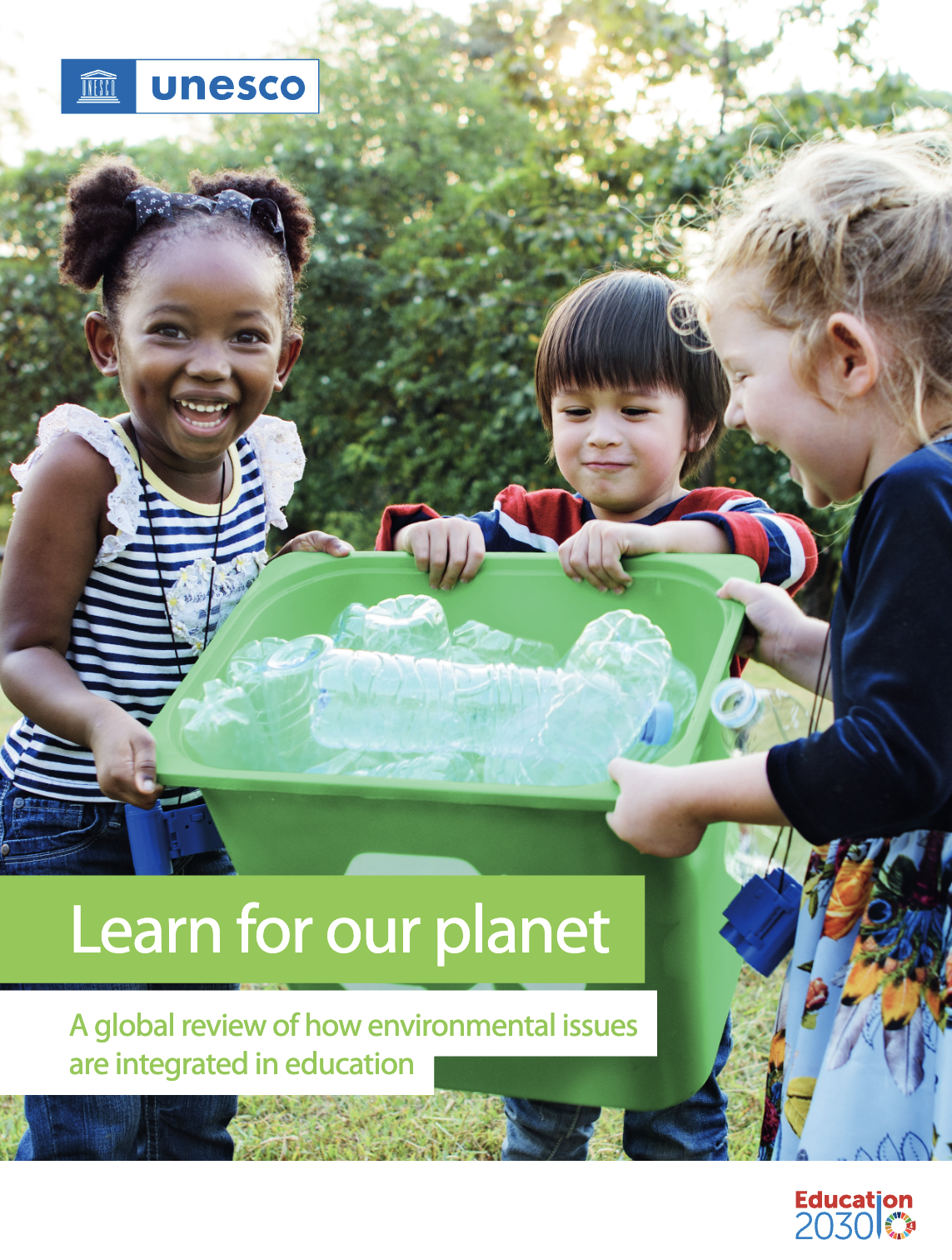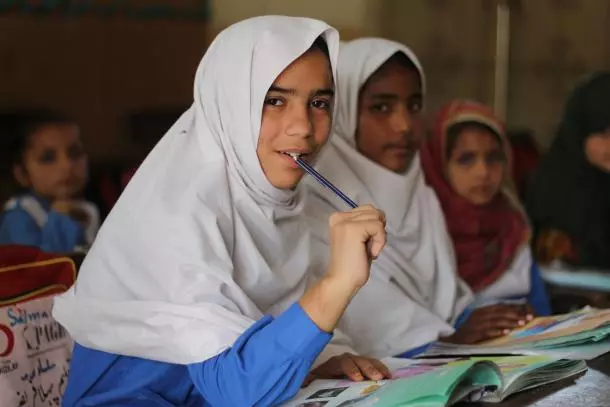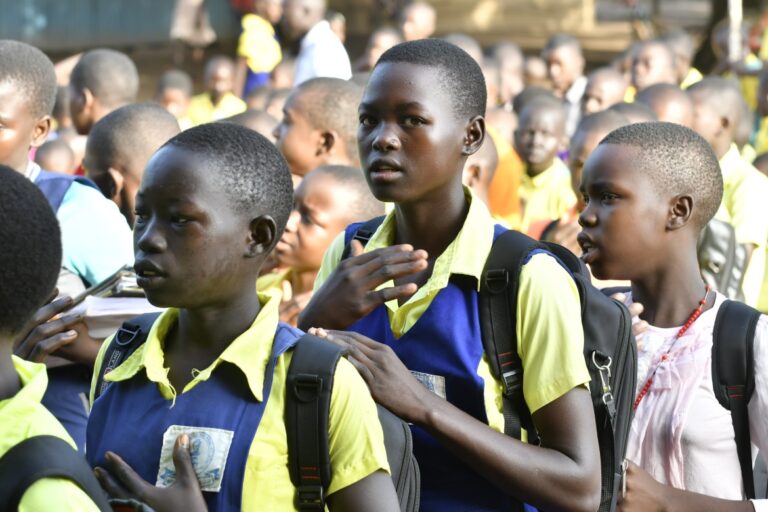Students need more support to learn and act for our planet.
2020 was the equal hottest year on record. One million species are at risk of extinction. We use more resources than the planet can generate each year – if we continue to live the way we do today, we will need three earths by 2050. The way we currently live is not sustainable. Urgent change is needed, but lasting change is impossible without education.
This publication presents the extent to which environmental issues are integrated in primary and secondary education policies and curricula across 46 UNESCO Member States. Over half of education policies and curricula studied made no mention of climate change. Only 19 per cent made reference to biodiversity. Countries have made progress: 83 per cent of education policies and curricula studied addressed the environment at least once, and 69 per cent mentioned sustainability – but it is clear that more needs to be done to prepare learners with the knowledge, skills, values and attitudes to act for our planet.
Governments, education policy-makers, academics, and education and environmental stakeholders need to further commit to Education for Sustainable Development. Let’s ensure learners everywhere are change-makers who learn and act for our planet!
Read the full report on the UNESDOC website.






